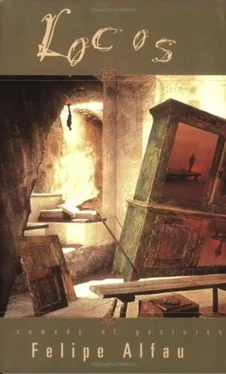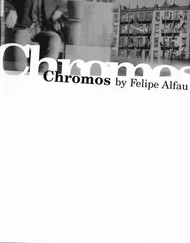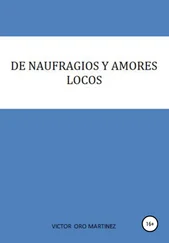At last the poor man rose. He approached one of the six men and exchanged a few words with him. A carriage was summoned and they all piled inside and went away. On the back of one of the men I saw plainly written in thick letters:
AGENCIA OLOZAGA
The same Olózaga, I thought, always the same imaginative and resourceful spirit, always the same public-arousing love for the colorful, always new and refreshing in his conceptions.
When I left Barcelona I heard that the agency had been dissolved by the police as scandalous, abusive and mob-gathering.
When I went back to Madrid I found Olózaga already established in another business.
The thing consisted of selling the clothes that had belonged to dead people. This idea was not original and, as a matter of fact, it had been worked often in Spain.
When a man dies in Spain (and I suppose anywhere else, for that matter) he is dressed in decent clothes. Whether he is poor or rich he usually has a nice suit of clothes, his Sunday best, generally black, to wear in his coffin. This is the psychology of the business.
The question is to get hold of this suit, and this is the technique: If the family is poor, between having lost its main support and with the expenses which the funeral entails, they are in need of funds and sometimes it is easy to buy the suit cheaply before the coffin is closed. Sometimes the price must be slightly elevated because there is someone in the family whose measurements coincide more or less with those of the deceased. But usually the man who runs the business introduces himself as the representative of some charitable organization. In an eloquent speech he points out that the suit will be used to more advantage covering the nakedness of some poor person than under the ground. That it will be an act of charity that will greatly please the deceased, that it will arouse the gratefulness of the poor on earth and of the Lord in Heaven, and that many prayers will be said for the generous soul of the dead man. Under the circumstances the family usually gives up the suit without investigating further.
However, in difficult cases it is necessary to deal with the grave-digger in the cemetery and get him to exercise his pull with the dead.
These suits, usually in good condition after a little sponging and pressing, are sold not as secondhand but as misfit, and they leave a good profit. In order to eradicate certain odors which may have clung to them, they are sprayed with a powerful disinfectant, the smell of which has come to be identified with that of death and is most persistent and insidious.
The result is that when an innocent person buys one of these misfits , expecting it to pass for a regular suit, he goes by trailing an accusing and funereal atmosphere, which his friends immediately detect with consequent mirth and irreverently sarcastic sallies.
Olózaga had gone into this business associated with a man, Don Laureano Baez, a rogue after whom the police had been for some time.
I met Olózaga one summer’s day at the street of Alcala in Madrid. As I saw him coming toward me, outlined against the setting sun, he still looked a big man, but not quite so large as before. He was dressed in a black coat with white flannel trousers, a panama hat, and carried a walking stick. His complexion was fairer now, his eyes were still as oblique and quite puffed underneath. His drooping mustache, as well as his hair, was white and not as long at the ends, and he had quite a heavy abdomen. Europe had softened him as much as Europe could, but there was still that exotic and buoyant air about him.
We had not seen each other for some time and we sat at La Elipa and there he told me about his business.
“Yes,” he said. “Everything is decadent now. Even I, who have been so active and resourceful all my life, must content myself with this petty business. In my day, there were adventure and opportunities. Nowadays a man steps out into life and life does not give him a chance to display his ability. The time for opportunities is gone. I have outlived my epoch and that is the worst mistake a man can do. I feel superfluous.”
We drank something and talked on, then we walked slowly toward La Castellana.
The Last Glow
A few days after I had seen Olózaga, Madrid was shaken by a crime in which he was involved indirectly. The whole thing came out in the papers, which were full of the accounts.
It seems that Don Laureano Baez, the partner of Olózaga, had a good-looking daughter called Maria Luisa, who was known by the nickname of Lunarito. Olózaga liked the girl and for some time had tried to come to an agreement with Don Laureano whereby the latter would let him have Lunarito for a certain amount of money. They had had several quarrels over this matter and had not been able to come to any agreement. Don Laureano wanted more money.
Then Olózaga began to gamble and win at the Casino de Madrid. He kept this up for several nights and one night when he had been particularly lucky he received a message. It was a letter from Don Laureano Baez saying that he would accept the price they had discussed and to come right away. That he would find the door open and Lunarito waiting for him.
Olózaga communicated immediately with his secretary, Cendreras, and sent him to the house of Don Laureano, following at some distance. When he arrived he saw the house of Don Laureano completely dark inside. In the street before the house, someone had built a bonfire and the whole front of the house was illuminated with a red glow.
Olózaga saw Cendreras enter the house. He waited long but Cendreras never came out.
There were several repugnant incidents that leaked out in connection with this crime which it is not necessary to describe. Lunarito was found guilty of murder, as was Don Laureano. He was given life imprisonment at the age of eighty and Lunarito, due to her age and after a long and notorious trial, was sent to a place of correction.
The Spanish public has sometimes romantic and novelistic reactions which are curious in such an old country. The case of Lunarito appealed greatly to the public imagination and several young men of the best society offered to marry and redeem her. A young man about town, by the name of Gaston Bejarano, who enjoyed a certain degree of popularity due to his gay life and the free way in which he spent money, succeeded in marrying her and added thus to his popularity.
I met Olózaga a few days later and he showed me a paper, laughing:
“The fool Bejarano,” he said, “just like everybody else in his family. I knew his grandfather and he was just as big a fool. You know? It is curious. Every girl or woman I have liked has married well. Five of them married me.” He laughed again.
Then he turned to another page in the paper:
“These stupid Frenchmen have just spoiled a good business for me. Here is an article saying that they expect to inundate the Sahara Desert and make a sea out of it. I was just about to organize a company to exploit that desert. A chemist friend of mine told me that there was no cleanser as good as plain sand and I was about to sell the Sahara Desert at ten centimes a box. Another good business spoiled.”
“That is very unfortunate,” I said.
We walked silently a while. Olózaga said suddenly:
“But now that I think of it, that idea of making a sea out of the desert is really fascinating and offers infinite opportunities. I think I will get hold of a man I know who will give me a few pointers and perhaps I can do something big with it.”
A young modistilla passed us by. Olózaga, by force of habit, passed her a piropo and the girl smiled and winked at him.
Olózaga shook me by the hand:
“Sorry to leave you so soon, but I have important business. So long.”
Читать дальше












